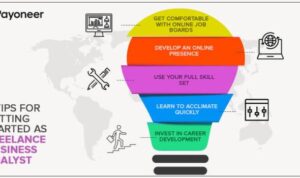Building a Startup Business is like crafting a masterpiece, where every stroke of innovation and determination shapes the canvas of success. Dive into this journey filled with challenges, triumphs, and the ultimate goal of establishing a thriving business.
Introduction to Building a Startup Business
A startup business is a newly established company designed to develop a unique product or service in the market. These companies are characterized by their innovative ideas, rapid growth potential, and ability to disrupt traditional industries.
Why Startups are Important
Startups play a crucial role in driving innovation and economic growth. They bring fresh ideas to the market, create job opportunities, and challenge established businesses to adapt and improve.
Challenges and Opportunities
- One of the main challenges of starting a new business is securing funding to support growth and development.
- However, startups also present opportunities for entrepreneurs to make a significant impact, build a strong brand, and create a loyal customer base.
- Navigating market competition, scaling operations, and managing cash flow are common challenges that startups face.
Planning Your Startup
Starting a business ain’t just about having a cool idea, you gotta have a solid plan to back it up. Here’s why it’s crucial to plan your startup right from the get-go.
Importance of a Well-Thought-Out Business Plan
Having a well-thought-out business plan is like having a roadmap to success. It helps you define your goals, strategies, and financial projections. Plus, it’s essential for attracting investors and securing funding. So, don’t skip this step!
Market Research and Shaping Your Startup Idea
Market research is the secret sauce to shaping your startup idea. By understanding your target audience, competitors, and industry trends, you can tailor your product or service to meet market demands. So, get out there and do your homework!
Setting Achievable Goals and Milestones
Setting achievable goals and milestones is key to keeping your startup on track. Break down your big dreams into smaller, actionable steps and celebrate each milestone along the way. Remember, slow progress is still progress!
Legal Considerations for Startups
When starting a new business, it is crucial to consider the legal aspects to ensure compliance and protection for your startup.
Legal Structures for Startups
- Limited Liability Company (LLC): Provides limited liability protection for owners and flexibility in management.
- Sole Proprietorship: Simplest form of business ownership where the individual is fully responsible for all aspects of the business.
- Corporation: Offers limited liability protection and allows for the sale of stocks to raise capital.
Protecting Intellectual Property Rights
- Trademarks: Protect your brand name, logo, and slogans from being used by others.
- Copyrights: Safeguard original works like writings, music, and artwork from unauthorized use.
- Patents: Secure the rights to new inventions, processes, and designs.
Contracts, Agreements, and Compliance, Building a Startup Business
- Contracts: Establish clear terms with suppliers, partners, and employees to avoid misunderstandings.
- Agreements: Document agreements on ownership, roles, and responsibilities to prevent disputes.
- Compliance Issues: Ensure adherence to regulations related to taxes, licenses, permits, and data protection.
Funding Your Startup

When it comes to funding your startup, there are various options available to entrepreneurs. Each funding source comes with its own set of pros and cons, so it’s important to understand them before making a decision. Additionally, creating a compelling pitch deck is crucial to attracting potential investors.
Bootstrapping
Bootstrapping is the process of funding your startup using personal savings or revenue generated by the business itself. While it gives you complete control over your business, it can limit your growth potential due to a lack of external funds.
Angel Investors
Angel investors are individuals who provide capital in exchange for ownership equity or convertible debt. They can offer valuable expertise and connections, but you may have to give up a portion of your company in return for their investment.
Venture Capital
Venture capital firms invest large sums of money in startups with high growth potential. While this can provide significant financial resources, it often comes with strict terms and conditions, including giving up a significant stake in your company.
Crowdfunding
Crowdfunding involves raising funds from a large number of people, typically through online platforms. It allows you to validate your idea and generate buzz around your product, but it can be challenging to stand out among the sea of other campaigns.
Creating a Compelling Pitch Deck
A pitch deck is a visual presentation that provides an overview of your business to potential investors. To create a compelling pitch deck, focus on highlighting your unique value proposition, market opportunity, business model, traction, and financial projections. Keep it concise, engaging, and visually appealing to capture the attention of investors.
Building a Strong Team: Building A Startup Business
Building a strong team is crucial for the success of your startup. The right team can bring diverse skills, experiences, and perspectives to the table, helping your business navigate challenges and seize opportunities.
Recruiting Top Talent
- Define clear job roles and responsibilities to attract candidates who align with your startup’s vision.
- Utilize multiple channels for recruiting, such as job boards, social media, and networking events.
- Implement a rigorous interview process to assess candidates’ skills, culture fit, and passion for the startup.
Hiring the Right People
- Look for candidates who not only have the required skills but also demonstrate a growth mindset and adaptability.
- Consider cultural fit and how well candidates align with the values and mission of your startup.
- Provide opportunities for candidates to showcase their creativity and problem-solving abilities during the hiring process.
Retaining Top Talent
- Offer competitive salaries and benefits to keep employees motivated and engaged.
- Provide opportunities for professional development and growth within the company.
- Create a positive work environment that fosters open communication, collaboration, and recognition of employees’ contributions.
Marketing and Branding Strategies
Marketing and branding are crucial aspects for the success of any startup business. Implementing effective marketing strategies and creating a strong brand identity can help your startup stand out in the competitive market.
Different Marketing Strategies
- Social Media Marketing: Utilize platforms like Facebook, Instagram, and Twitter to reach a wider audience and engage with potential customers.
- Content Marketing: Create valuable and relevant content to attract and retain customers, showcasing your expertise in the industry.
- Influencer Partnerships: Collaborate with influencers in your niche to promote your products or services and increase brand awareness.
Importance of Branding
Branding plays a crucial role in shaping how your target audience perceives your startup. It helps differentiate your business from competitors and builds trust with customers. Creating a strong brand identity involves defining your brand values, mission, and visual elements that resonate with your target market.
Engaging with Your Target Audience
- Know Your Audience: Conduct market research to understand the needs, preferences, and behaviors of your target audience.
- Personalize Communication: Tailor your messaging and content to resonate with different segments of your target audience, making them feel valued and understood.
- Build Customer Relationships: Focus on providing excellent customer service, seeking feedback, and maintaining regular communication to foster long-term relationships with customers.
Scaling Your Startup

When it comes to scaling your startup, it’s crucial to have a sustainable growth strategy in place. Rapid expansion can bring both challenges and opportunities, so it’s important to navigate this phase carefully.
Expanding to New Markets
Expanding your startup to new markets can be a great way to grow your business and reach a larger audience. However, it’s essential to conduct thorough market research to understand the needs and preferences of your target audience in these new markets.
- Identify potential markets based on your product or service offerings.
- Adapt your marketing and branding strategies to cater to the new market’s preferences.
- Establish partnerships or collaborations with local businesses to establish a presence in the new market.
Diversifying Product Lines
Diversifying your product lines can help you attract a wider range of customers and increase revenue streams for your startup. However, it’s important to ensure that any new products align with your brand and target audience.
- Conduct market research to identify gaps in the market that your new products can fill.
- Test new product ideas with a focus group or beta testing phase before full-scale production.
- Create a marketing plan that highlights the unique value proposition of your new products.
Managing Finances and Operations
Financial management is crucial for the success of any startup. It involves tracking and optimizing the use of financial resources to ensure the business stays afloat and grows steadily. In addition, efficient operational processes are essential for maximizing productivity and minimizing costs.
Importance of Financial Management
Effective financial management helps startups make informed decisions, allocate resources wisely, and plan for the future. By monitoring cash flow, expenses, and revenue, entrepreneurs can identify areas of improvement and address potential financial challenges before they become critical.
Key Financial Metrics and Budgeting
- Revenue: The total income generated by the business.
- Profit Margin: The percentage of revenue that represents profit after expenses.
- Cash Burn Rate: The rate at which a startup is spending its available cash.
- Runway: The amount of time a startup can operate before running out of funds.
Creating a budget involves forecasting revenues and expenses, setting financial goals, and monitoring actual performance against the budget regularly.
Optimizing Operational Processes
- Streamline Workflow: Identify and eliminate bottlenecks or inefficiencies in the production or service delivery process.
- Leverage Technology: Use tools and software to automate tasks, improve communication, and enhance operational efficiency.
- Resource Allocation: Allocate resources effectively to maximize output and minimize waste.





